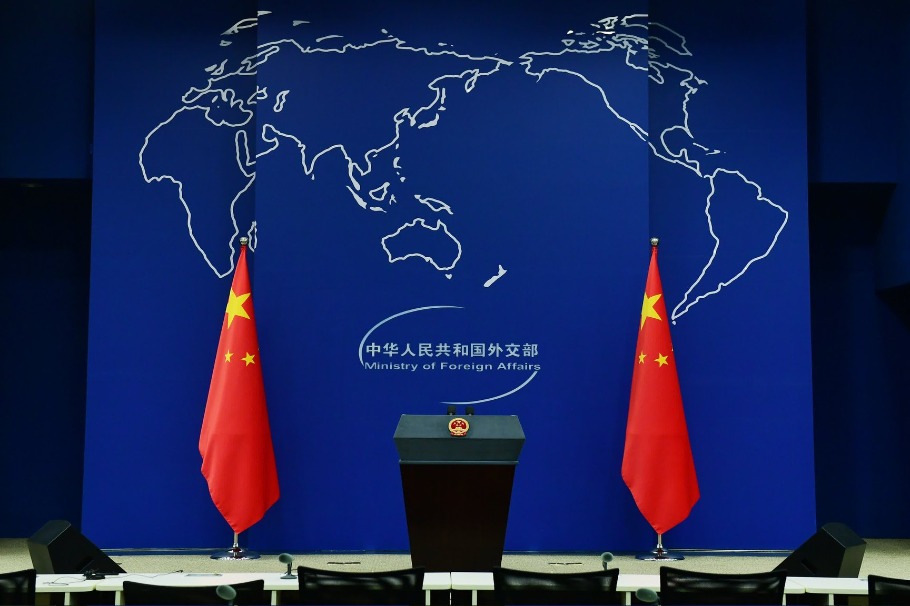Life-changing experience in China
Belgian scholar's insights reflect deep connection with nation's transformation
By CHEN WEIHUA in Brussels | China Daily | Updated: 2024-09-11 07:45

Editor's note: As the People's Republic of China celebrates the 75th anniversary of its founding this year, China Daily asked prominent international figures to reflect on their relationship with the country and to talk of the direction in which they see it going.
At 18, Dorien Emmers, a Belgian, faced a pivotal decision: which new language to pursue after already studying Greek and Latin. Intrigued by Chinese culture but aware of the language's complexity, she embraced the challenge.
"I like a good challenge," recalled Emmers, now an assistant professor at the Chinese Studies Group and the Department of Economics at KU Leuven, Belgium's oldest university, founded in 1425. She described the decision as being made "just out of curiosity and interest" and "without knowing a lot about China".
The China study program at KU Leuven was so intensive that she quickly found herself lost and ended up forgoing a bachelor's degree in the subject.
After finishing her undergraduate studies, Emmers received a scholarship from the China Scholarship Council to study at the Southwestern University of Finance and Economics in Chengdu, Sichuan province, from 2012 to 2013.
"This was an amazing experience and actually had an impact on everything I did afterward," she told China Daily at her Brussels home.
As a European, Emmers finds learning Chinese more challenging than studying ancient Greek, as the latter shares similarities in grammar and vocabulary, whereas Chinese belongs to a completely different language family. However, she had much fun learning Chinese idioms and colorful expressions that "we don't have in our languages".
"That was also the beautiful thing about it," said Emmers, who now speaks fluent Chinese and is known to many by her Chinese name Du Yan.
She also quickly fell in love with Chengdu and returned last summer, still enamored with the city.
"I still love the vibe there; Chengdu ren (people) are just great people," she said.
Her language skills improved rapidly in Chengdu, an accomplishment that she said can only be achieved by "being there, studying the language all year round and practicing the language all day, in a fun way by interacting with people, or just by reading the signs next to the streets".
It is also the case when it comes to learning about a culture and society, she said. "You can only learn it by being there."
Emmers was fascinated by China's rapid urbanization and excited about learning new things, from singing karaoke to eating hot pot.
She was overwhelmed by the hospitality received from the Chinese, who frequently invited her to dinner, so she was never alone during meals.
Initially, she could not eat spicy food. During her first three months in Chengdu, she ate with tissues in hand, "sweating, crying and sneezing".
"But I really like it now," she said. Shortly after returning to Belgium, she wanted to know where to find spicy food but failed.
"Chengdu people are very lucky to have so many good dishes," she said. "I want to meet local people and make local friends."
Emmers, who holds a PhD in economics from KU Leuven, is a development economist with extensive experience in studying early childhood development in China.
It goes back to her time in Chengdu, where she and several international students taught English to the kindergarten children in Ya'an, about 116 kilometers from Chengdu, after the area was struck by a major earthquake in spring 2013.
"It was a very beautiful region, but I also realized the English level of 12-year-olds in the boarding school was worse than that of 4-year-olds in Chengdu," Emmers said.
Coming from the Belgian countryside herself, Emmers said she became interested in the subject because her mother and grandmother, unlike urban women, were not allowed to study in Belgium in the olden days.
After returning from China, she wrote a thesis on this topic while pursuing a master's degree in Chinese studies and economics at KU Leuven.
Her research revealed that educational inequalities begin very early in life, even in the first year of life. For example, if a 2-year-old struggles with language development, they will likely face difficulties keeping up with their peers by the time they start primary school at age six.
"Starting to help children catch up at age six is much more difficult, much more expensive than helping them when they are 1 or 2 years old," she said, adding that was true around the world.
The lack of resources, from financial support to educational materials such as children's books, was a major problem in rural China, especially when grandparents, often the primary caregivers, mistakenly believed it makes no sense to talk to a child who could not yet speak.
"But actually, even for a child who can't talk, it's important for the language development … These are some small changes that can make (a big difference) for early child development," she said. "That's what we have been working on."
Substantial improvements
Having visited China about 20 times, Emmers has seen substantial improvements in early childhood development across Chinese cities as living standards have improved.
She was impressed by an early childhood development center she visited in Xi'an, Shaanxi province, where she saw all kinds of specialized classrooms for dancing, singing and other activities.
"In urban China, amazing job …But in rural China, none of these of course," she said.
Emmers is excited that going to China has become much easier now, with the Chinese government's visa-free policy for short-term visits by Belgian nationals.
She has traveled across the country, from Yunnan province to Guilin and Yangshuo in the Guangxi Zhuang autonomous region, to Shaolin in Henan province, the birthplace of Chinese kung fu, and Dunhuang in Gansu province, renowned for its caves with ancient murals.
She said her perception of China has changed completely since her visit to China and she felt she did not know anything about China at the time.
"It has changed so much… I think most people don't realize how little they know about China," she said.
"People need to learn about China to actually understand it a little bit… It's incredible how quickly China develops and changes."
She describes China today as "completely different" from 10 years ago and "a different country" if going back 20 years.
"I'm a development economist, that's why studying China is so interesting. You can learn so much from the Chinese experience," Emmers said.
"That's also such useful information for other countries which try to develop and grow ... Yes. China has done impressive things over the last 50 years."
Emmers is worried about the declining enthusiasm among her students in studying in China because of the pandemic, and the global geopolitics that has triggered a lot of negative press in the West about China.
However, she said students who have studied in China generally have very positive experiences.
"For most students, it's really a transformative experience," she said. "So it's very beautiful to see almost all of them are very positive. There are exceptions. There are people missing home."
























